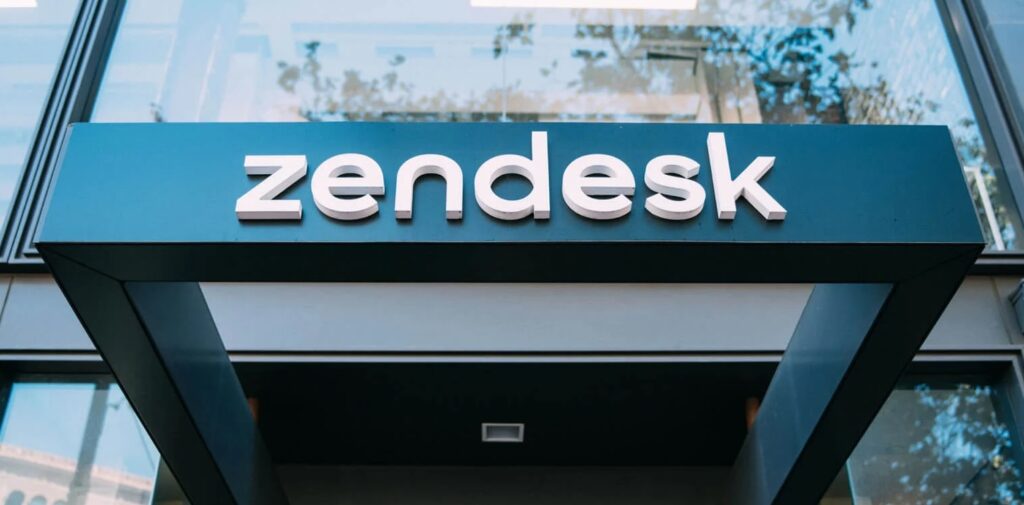How Zendesk’s CIO balances governance and innovation in the age of AI

Craig Flower, CIO at customer support platform Zendesk, came on board in 2023, a year to the day after OpenAI released ChatGPT. It was a pivotal time for the organization as it tried to figure out how to incorporate generative AI into operations and products. At the same time, the company had been taken private at the end of the prior year and was grappling with all the operational changes that come with new ownership.
While Flower understood that this technology was going to be transformational, he also knew that he had to balance the innovation potential with some good, old-fashioned governance, all without being the guy who said no all the time. It was not an easy balancing act for him.
Flower says it’s impossible to skirt those fundamentals, no matter how progressive you want your company to be. That means regardless of the technology, he always tries to do a couple of things at once: One is creating a framework to encourage usage. The other is developing a parallel track that takes governance, security and privacy into account.
As AI starts to mature, and companies like Zendesk get more experience with it, he has a better grip on how to manage it. We talked about the company’s generative AI journey, how he’s thinking about AI agents internally and how the company can continue to thrive in an agentic world that some believe could threaten SaaS companies like his.
Encouraging responsible AI usage
Flower looks at AI as simply another way to get work done. “It’s another arrow in the quiver for how we provide productivity tools to employees, helping us work better, and in some cases differently, as we move ahead,” Flower told FastForward.
He looks at his job as a facilitator to encourage AI usage, and he has taken a number of steps to support open experimentation. “We make it very open, so you don't have to do anything in secret, and we bring people into the process,” he said.

“I want to basically take all the friction out of doing what you want to do, and then create forums where you can bring [your AI idea] forward and make it happen, and get active support to help make it happen.” That support includes educating people about reasonable governance, security and privacy, as well as an internal review board to evaluate employee AI ideas and decide which ones to move forward with.
At the same time, he provides a set of approved tools to help employees get comfortable with AI and start using it on a regular basis. He hopes this approach will help cut down on the use of Shadow AI, where people are using tools without the knowledge of the IT department. This balance between openness and oversight also shapes Zendesk’s approach to AI product development.
The company's agentic AI strategy
As a customer service company, Zendesk has access to vast amounts of customer interaction data for training and automation purposes. Large language models perform best with high-quality data, which could give Zendesk an edge when building ChatGPT-like bots for customers or developing AI agents to automate tasks. From a product perspective, this means Zendesk can take a more intentional approach to AI than many typical SaaS companies.
In fact, Flower sees agents as a big part of the company’s product roadmap going forward, where agents take care of some of the tasks and humans take care of others. As an example, Zendesk has developed agents designed to handle low-level tasks such as order tracking, order updates, return policies, hours of operation and other basic customer service tasks without human involvement. The company also has built an agentic framework for more complex, multi-step interactions involving multiple systems.

In spite of these advances, there are always going to be instances where humans have to step in, but over time as agents become more capable, the balance could shift. “As agents get more and more sophisticated, we think that automation can do more and more, and humans may start playing a different role. They will always be the expert, but they may have more of a supervisory role.”
At the same time, he knows that people often still prefer talking to other people, especially for more complex issues, and the platform needs to continue supporting that. “We are delivering service, usually from humans to humans, and we still need to keep that at the center of our overall strategy,” he said.
Zendesk and the future of SaaS
As for the future of the company, and whether AI could eventually replace SaaS companies like his, Flower doesn’t discount the idea completely, but he is skeptical that companies will want to build systems themselves. It’s something that he’s done in his career, and he knows all of the work and complexity that goes into doing it.
“It is possible that there could be complete disruption, that you could have some of these AI agents that just eradicate some SaaS stuff,” he said. Still, he argues that what sets companies like Zendesk apart is how they combine “AI-based automation, human expertise, knowledge, analytics and everything else that goes into building a complete system.” That, along with the valuable customer data they’ve collected over the years, will be tough for others to replicate—even as agentic technology advances.
He made a big career bet on Zendesk because he’s confident the company can continue to adapt and deliver value, no matter how much AI changes the software landscape.
Featured photo courtesy of Zendesk





